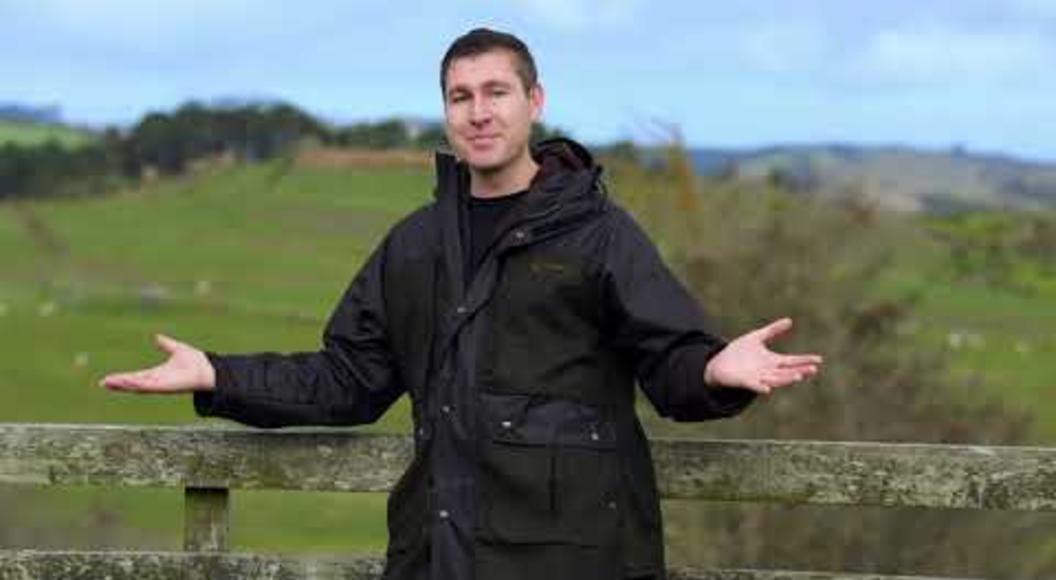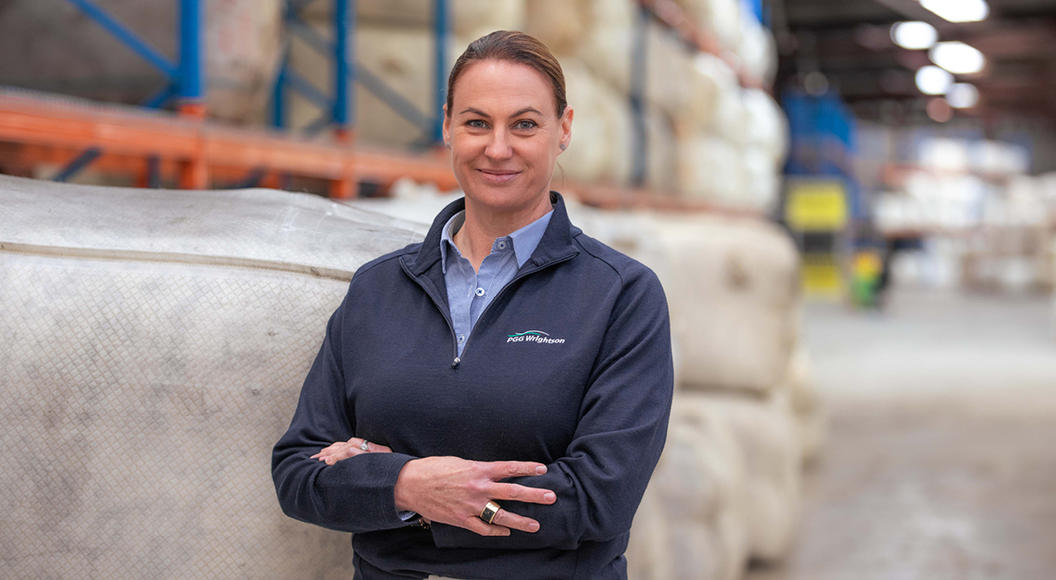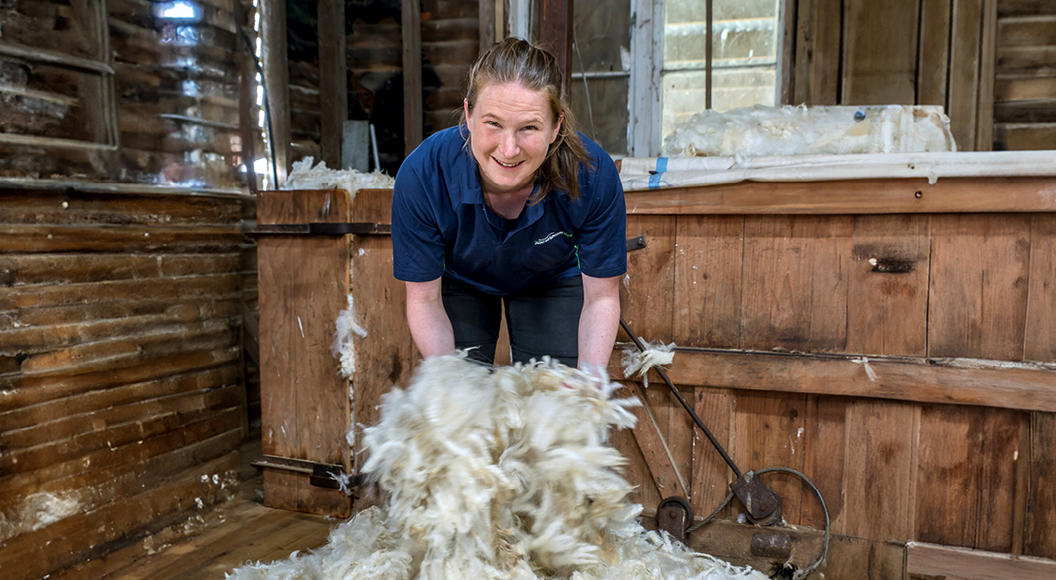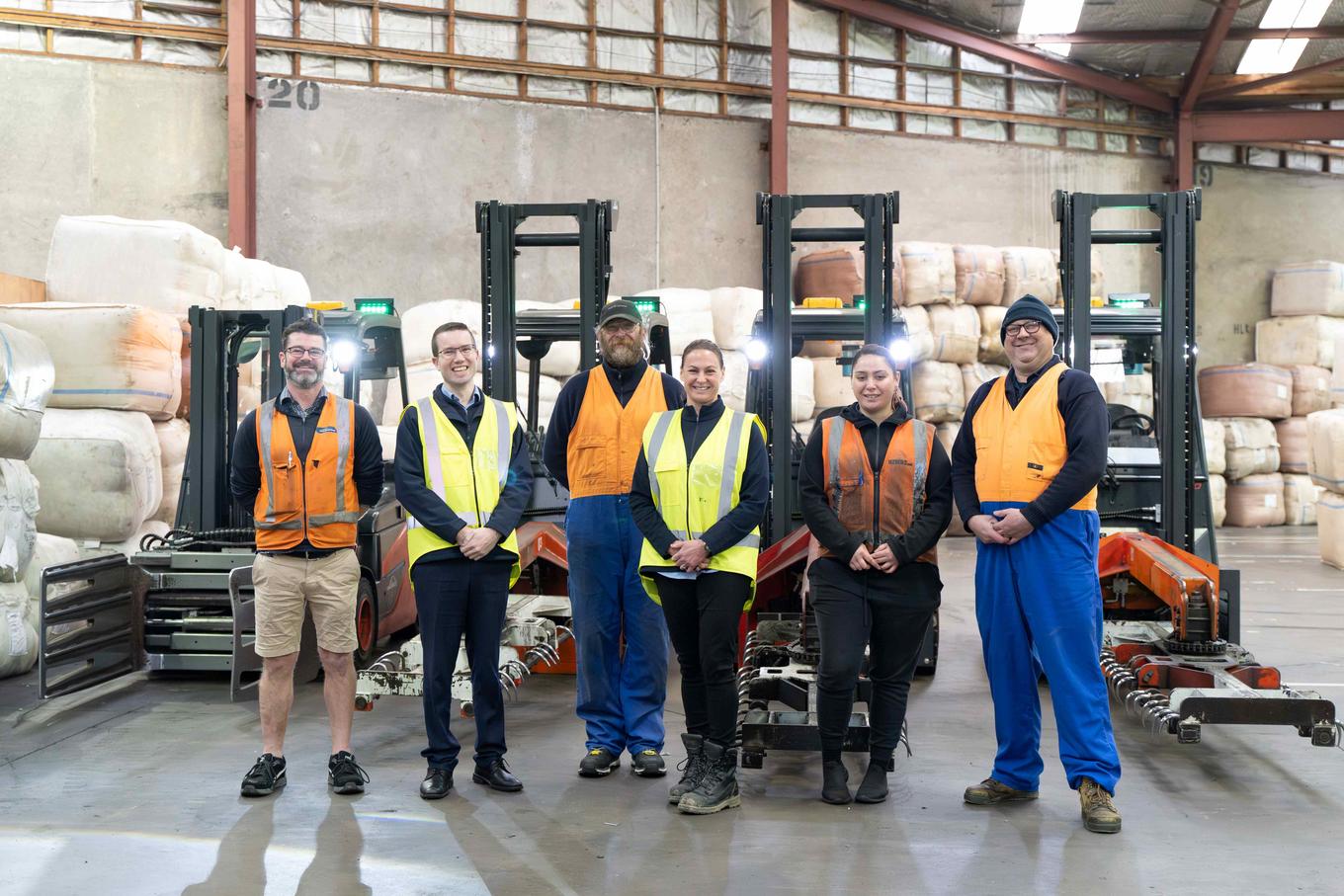
Electrifying key assets sees PGG Wrightson leading the charge when it comes to sustainability
Pictured from left to right: Ben Askew - Warehouse Manager, Michael Anderson - Sustainability Manager, Greg Ferguson - Wool Classer, Rachel Shearer - Acting GM of Wool, Richanna Clarke - Wool Classer, Dave Rosson - Wool Handler.
With the addition of six new electric fork-trucks at the Christchurch and Napier wool stores, the team at PGW are further signalling their commitment to sustainability. It’s a move that gets the company closer to a target of achieving a 30% in emissions reduction by 2030, and the good news is, there’s plenty more where that came from.
“The introduction of electric fork-trucks is a small, but visible change and is a tangible way for our team members, growers and others who visit our wool stores to see how we’re shifting the business towards a more environmentally-friendly future,” explains Rachel Shearer, Acting General Manager of Wool.
“They also symbolise the overall changes we are seeking across PGW. Because wool is the ultimate sustainable fibre, it makes sense for us to constantly seek ways in which we can ensure the ongoing sustainability of our part in the value chain.”
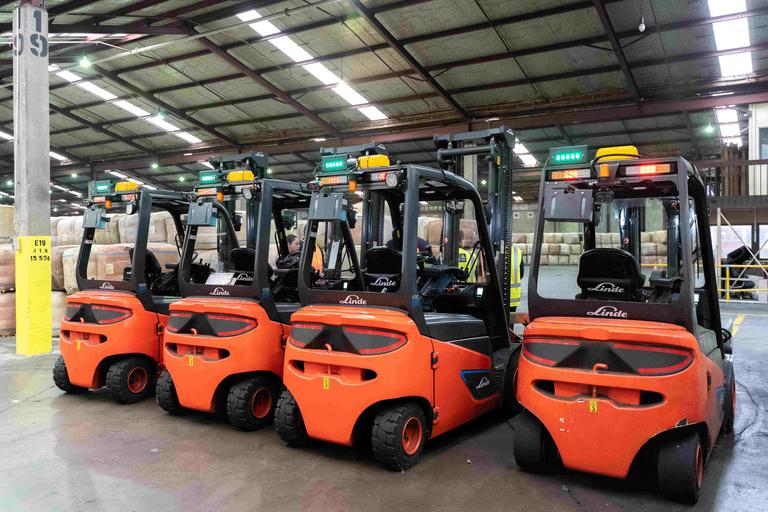
A fit-for-purpose support vehicle for wool store operations, the electric fork-trucks are typically cheaper to run, eliminate the manual handling and storage of fuels, reduce indoor pollution and are quieter to run. The electricity used to power them is also backed by a renewable electricity supply contract with Meridian Energy, making them zero emissions in operation. But being carbon neutral is not the only benefit for the wool store teams.
“Day-to-day operations are carried out in the exact same manner - product is able to be unloaded, stored and moved as before - but now it’s simply happening in a better way. As there is no longer a need for large tanks or bottles of fuel to be stored onsite, it helps to lower the health and safety risk profile for our staff,” says Michael Anderson, the Sustainability Manager for PGW.
And it seems that they have been well-received by those driving the new fleet additions, reports Ben Askew, the Warehouse Manager in Christchurch, where there was great excitement when the team found out they would be getting them in the wool store.
“Some staff, including myself, have used electrics at previous jobs and were all for the change. They are quiet when in use, there are no diesel fumes and no need to fill up - and they drive well within our narrow rows in the warehouse.
“But the biggest difference is how happy everyone is to be operating them. While they are safer to be around, we love the fact they are sustainable for the work we do.”
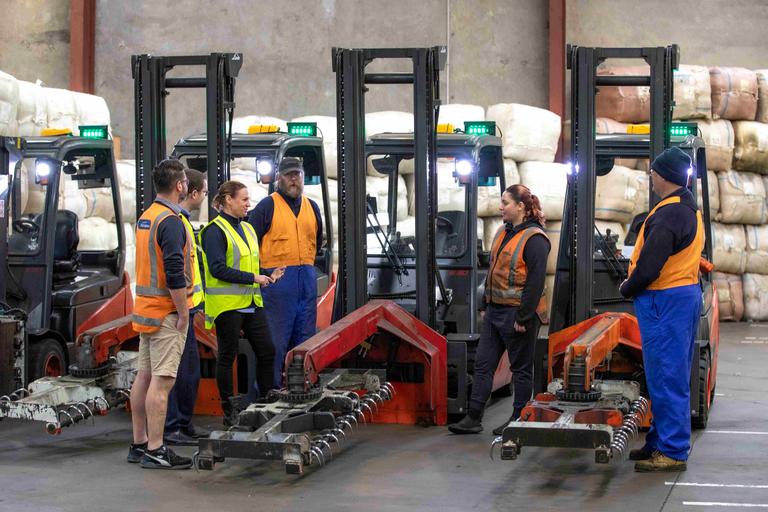
This type of feedback has certainly been a win for Rachel, Michael and those responsible for making changes in the business that relate to the Sustainable Strategy to 2030 set in place by PGW.
“It has been great to listen to the women and men who operate these new fork-trucks talking with enthusiasm about the efficiencies, cleanliness and additional safety features of them,” says Rachel.
“A handful were initially sceptical as they hadn’t operated electric ones before, however they are all converts and have been telling me they are looking forward to further additions to the fleet.”
On the practical side of things, Michael has heard that they have a much-improved turning circle, while maintaining the same lifting capacity, and are generally a bit nippier to get around the wool store.
He says the only adjustment has been remembering to plug them in at the end of the day to ensure they are ready to go with charge for the next morning - a small price to pay in the big picture of sustainable transformation for the organisation.
Other changes for the business have included the introduction of hybrid vehicles into the vehicle fleet, to improve efficiency and reduce emissions and working with farmer and grower clients to support the application of biological products on farms and in orchards.
There has also been the establishment of a partnership with suppliers and the Agrecovery program to provide circular recycling solutions to the bags and containers that product is supplied in, helping to ensure these plastics do not end up in waterway, buried or burned.
For Rachel, the message of being environmentally-friendly really resonates with the wool sector, as it's the ultimate sustainable fibre with a wide range of applications from traditional uses, such as carpets, garments, blankets and insulation, to more innovative applications like shoes, air filters, weed matting, tree guards and even surfboards.
And as Michael says, these changes and initiatives just make sense, aligning well with the overall messaging associated with wool grown in New Zealand.
“Wool is a fantastic product, being 100% natural, renewable and biodegradable. And electrification of buildings and assets, as well as moving the organisation away from the use of fossil fuels, into cleaner, renewable energy supplied electricity, are all key parts of the environmental pillar for our 2030 goal.”
